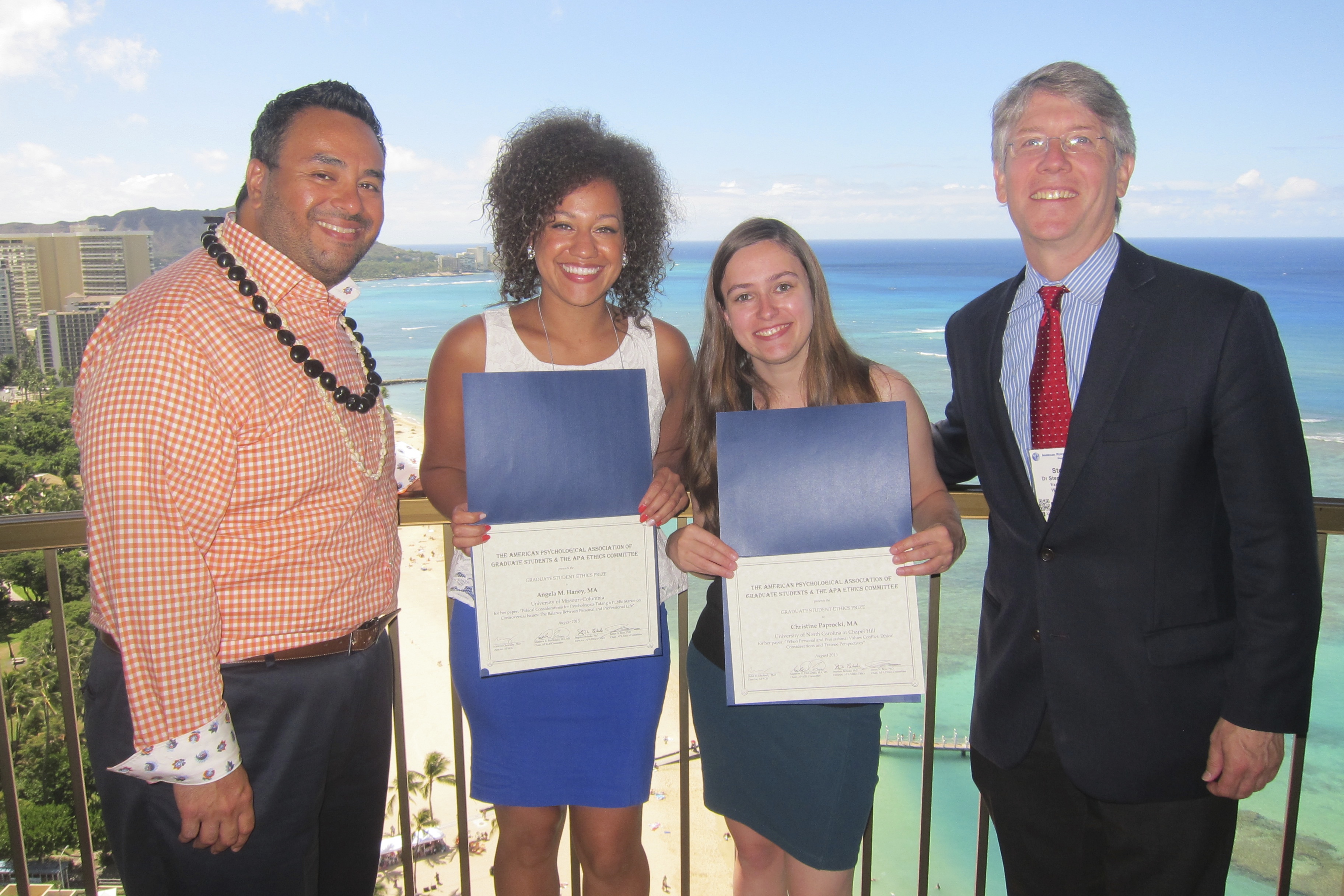The saying goes that there is no such thing as a free lunch. Correct! For this prize, write a compelling ethics paper and then you can treat yourself to many delicious lunches.
APAGS and the APA Ethics Committee have teamed up for the 13th time to award a prize to a graduate student whose winning paper successfully examines psychology and ethics. Applications are due January 3rd.
If you win, you are entitled to
- $1,000
- A round trip ticket to our 2014 Convention in Washington, D.C.
- with free registration
- three night of hotel accommodations
- a session to present your paper and receive your award
- The chance to get your work published in a peer-reviewed journal
Angela Haeny, M.A. from the University of Missouri and Christine Paprocki, M.A. from the University of North Carolina-Chapel Hill were APA’s 2013 winners. Angela wrote a paper on Ethical considerations for psychologists taking a public stance on controversial issues, and Christine wrote on Trainee perspectives on tensions between religious beliefs and affirming treatment of LGBT clients (follow the links to their articles in Ethics and Behavior).

From L-R: Dr. Nabil El-Ghoroury, head of APAGS; winners Ms. Angela Haeny and Ms. Christine Paprocki; and Dr. Stephen Behnke, head of the APA Ethics Office. On the balcony of the APAGS Convention Suite in Honolulu, Hawaii. (Source: APAGS).
For an inside track on why you should apply, I spoke recently with Angela and Christine.
Eddy: Please tell me, how did you arrive at your topics?
Angela: I have personal interest in being involved in controversial issues and wondered what that might look like as a psychologist in training.
Christine: My paper dealt with the ethical implications of “values conflicts” in which psychologists or trainees feel that their own beliefs would prevent them from working with a certain type of patient. I wanted to further explore the tricky ethical dilemmas that arise when this occurs within a training context.
Eddy: What benefits—obvious or not-so-obvious—did you get from being involved in this process?
Christine: It was a great way to delve into the details of a thorny ethical issue and write a more theoretical piece—as graduate students, we get much more training in research-oriented writing, so this was a wonderful growth experience! Also, I had a fantastic time at the APA convention. I had never been to this conference before, and was really impressed by the breadth and diversity of topics explored—it also didn’t hurt that it was in Honolulu! [Ed. note: We hope D.C. isn’t too shabby an alternative for 2014 attendees.]
Angela: Writing the ethics paper caused me to become more intimate with the Ethic’s Code and to think more deeply about ethical issues and considerations for psychologists taking a public stance on controversial issues.
Eddy: What advice would you have for 2014 applicants?
Angela: Choose a topic that interests you and have fun writing the paper! This is a great opportunity for you to showcase your knowledge on the APA Ethic’s Code and raise an issue that is important to you.
Christine: Definitely apply if you are thinking about it—it is an excellent way to engage more deeply with an important ethical issue affecting our field. As with any writing submission, have plenty of people read it and offer suggestions. Write about something that you feel passionately about and that really sparks your interest.
Consider working on your application over Winter Break!
